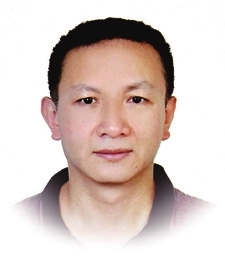
Winton Dong dht0620@126.com SINCE the first case of novel coronavirus pneumonia (NCP) appeared in December of last year in Wuhan, the capital of Hubei Province, all of China has been fighting the outbreak that has ravaged the country. The residents of Wuhan and its surrounding towns have made huge sacrifices in the fight against the virus. As the epicenter of the epidemic, Wuhan was locked down on Dec. 23, traffic only permitted in or out for emergencies. Almost all prefecture-level cities in the province (such as Huanggang, Xiaogan and Erzhou) later took similar isolation measures, preventing the spread of the disease. Such lockdown moves, unprecedented in modern times, tell of the gravity of the situation and the seriousness with which the government is addressing the public health threat. Nothing matters more than people’s safety and health. To scale up the country’s ability to treat patients in critical condition, the Huoshenshan and Leishenshan hospitals, two special emergency facilities with more than 2,000 beds, were constructed in Wuhan in just 10 days. More makeshift “square cabin” hospitals are still being urgently built in the city to accommodate people with minor symptoms. To bolster medical support, about 10,000 military and medical workers and volunteers from all over the country have also rushed in to help. Despite heightened control and prevention efforts, China has still witnessed a spike in the number of infected people over the past days. Especially with the end of the extended Lunar New Year holiday on Feb. 9, the country is now under greater pressure. Although migrants with jobs that are not critical for the smooth operation of a city have been asked to delay their return, hundreds of millions of travelers are still hitting the road or boarding flights to return to cities for job opportunities. Under such circumstances, governments at various levels should further step up control and prevention measures in public places, such as disinfection, proper ventilation, sterilization of vehicles, body temperature checks at all transport terminals and establishing quarantine areas to accommodate suspected patients, to contain the outbreak that may otherwise be magnified by the increasingly mobile population. With the war against the virus now expanding into small cities, counties, villages and even communities, the tasks have become more specific, concrete and arduous than before, ranging from treating all confirmed patients, quarantining suspected infected residents and people who have had contact with them in a timely manner, and taking care of disadvantaged groups who are in special need because of the lockdowns. Public demand for important daily necessities has surged in deadlocked places. With many cities and even villages cutting their ways out, keeping logistics and transportation unimpeded has become an urgent issue. We cannot win the battle without sufficient supplies. Particular attention should be given at present to medical equipment industries such as the manufacturing of gloves, protective suits, surgical masks, safety googles and negative pressure ambulances. Favorable tax policies and financing will be offered to people, enterprises and especially small and micro-businesses, which are vulnerable to the halts. Meanwhile, China should keep close contact with international organizations to accelerate the research and development of vaccines. The approval and clinical use of pharmaceuticals that have already proved effective such as Remdesivir should also be expedited. Vaccines and effective medicines are the antidote to the virus, and a clear understanding of the virus is the prerequisite to overcoming it. Medical staff are at the forefront of the fight against the virus and are making great contributions to the unswerving efforts. To curb the disease as quickly as possible, more and more medical workers from across the nation are being deployed to help Hubei and take over hospitals and inpatient wards that receive critically ill patients. Medics should first protect themselves, which will give patients hope and the whole nation more confidence to tide over difficulties. The country’s prevention and control measures should also be law-based. Derelict and negligent officials should be punished in accordance with the law. For example, the Red Cross Societies of Hubei Province and Wuhan are now both under public criticism for their opaque handling of donated materials. This is not the first time that the integrity and professionalism of the Red Cross Society have been questioned by the public. It is necessary to punish wanton officials and engage third-party supervision to strengthen the oversight of public rights. (The author is the editor-in-chief of Shenzhen Daily.) | 
